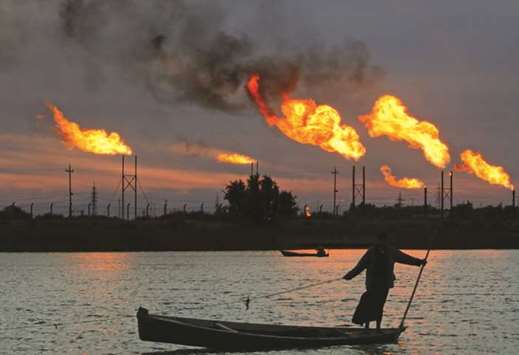From a Saudi advantage of 530,000 bpd in December 2016, the gap narrowed to just 254,000 in November, as China’s intake of Iraqi crude climbed to a record and purchases of the kingdom’s barrels fell. Tanker data show another drop in Saudi shipments to China in December.
Saudi Arabia has vowed to crack down on other members of the Organization of Petroleum Exporting Countries who aren’t doing their bit. While Iraq’s compliance has improved in recent months, that’s more because of a dispute with its Kurdish population rather than a conscious effort.
Opec’s agreement is solid for the moment, but flagrant cheating could mean the group can’t hold together all the way to the end of 2018.
Opec’s biggest weakness is “we tend to cheat,” former Saudi Oil Minister Ali al-Naimi famously observed.
Last year, Iraq - which initially resisted output curbs as it recovered from years of war - was so slow to deliver on promised cuts that its petroleum minister was summoned to Riyadh. The country’s very public ambitions to expand capacity as soon as possible only add to doubt about its commitment.
“As seasonal demand picks up in the summer months, we expect Iraq’s compliance with the agreement to slip,” said analysts at BMI Research.
Though Opec has produced less than the promised levels in the past few months, Libya and Nigeria remain the wildcards. Being initially exempt from the agreement, they boosted output at such a pace last year that the other countries enforced a limit on them as well.
Yet Libya’s production remains far below its theoretical cap. With the economy still ravaged by years of internal conflict, consultants Wood Mackenzie and Eurasia Group expect the country will pump every barrel it can.

